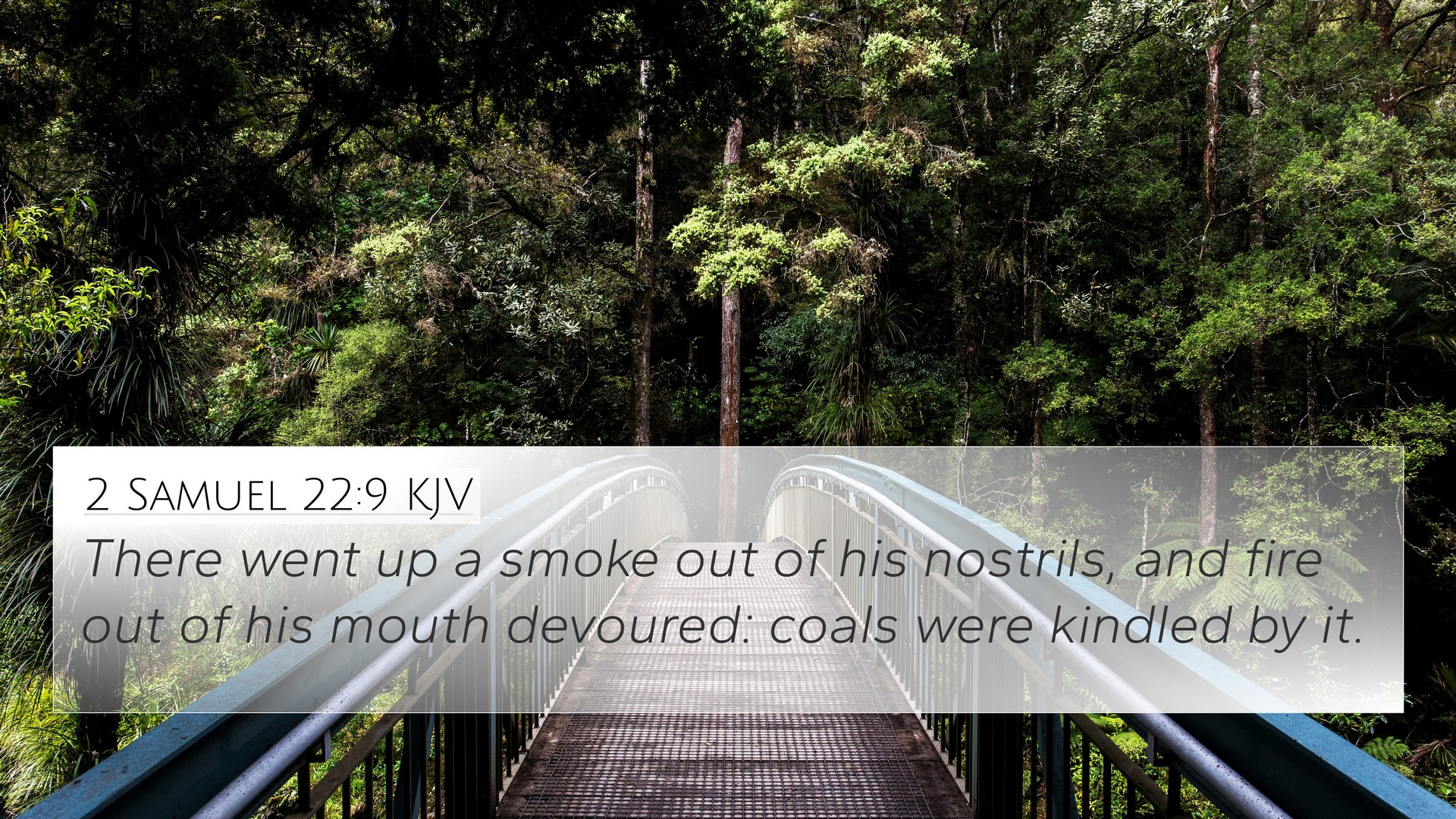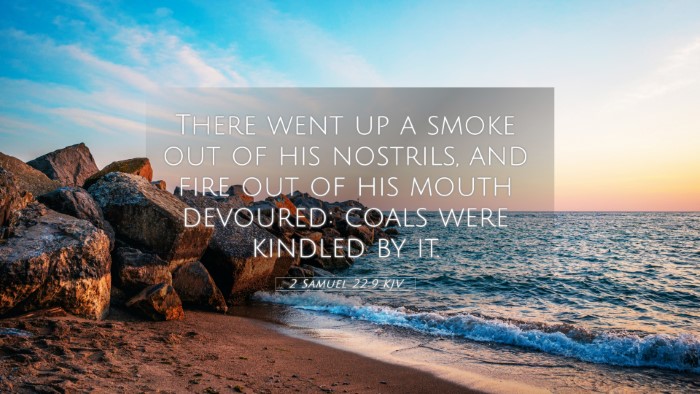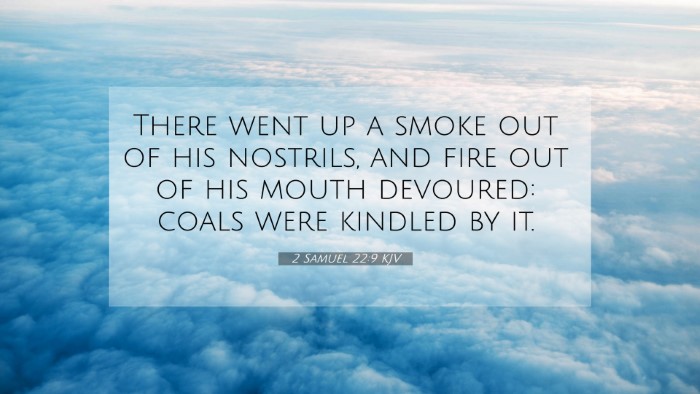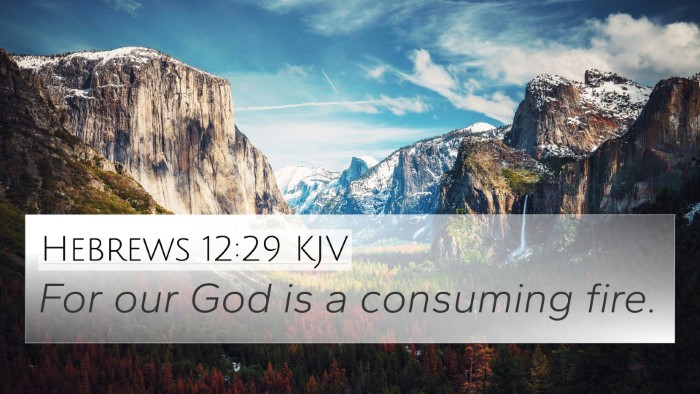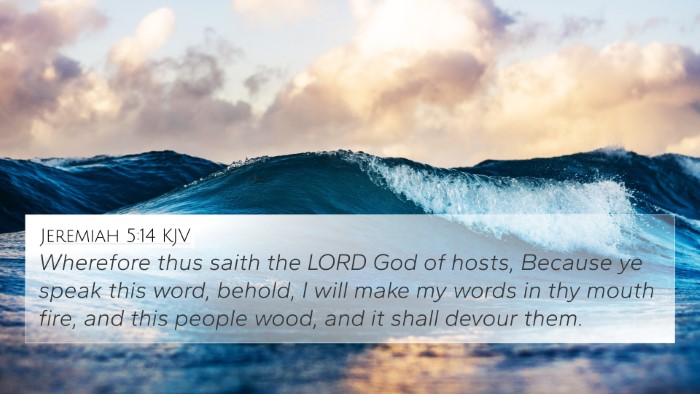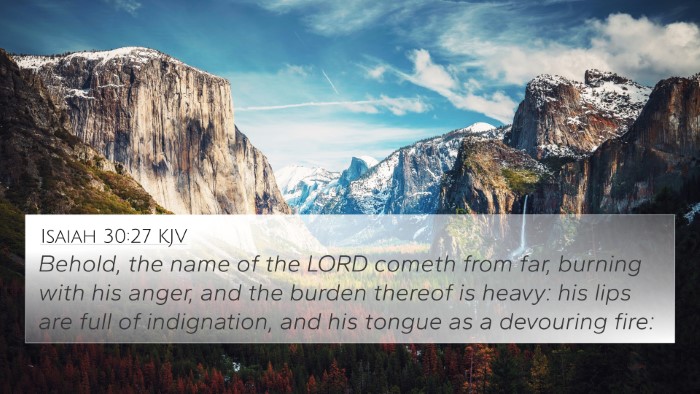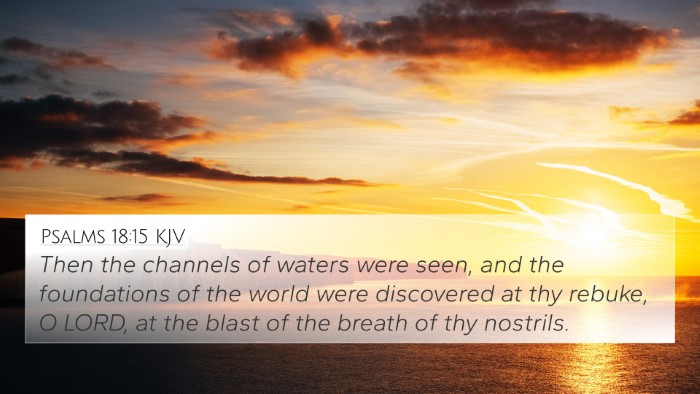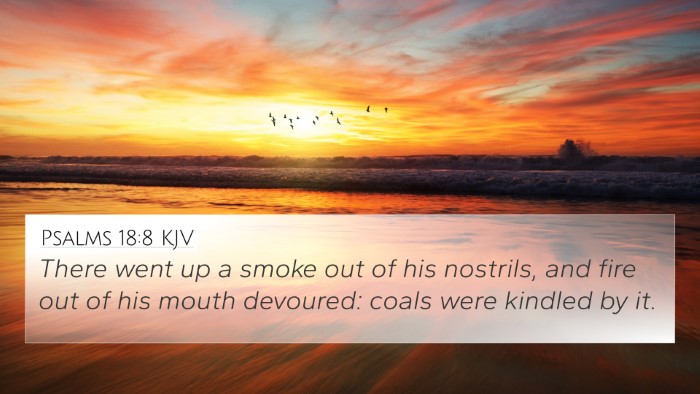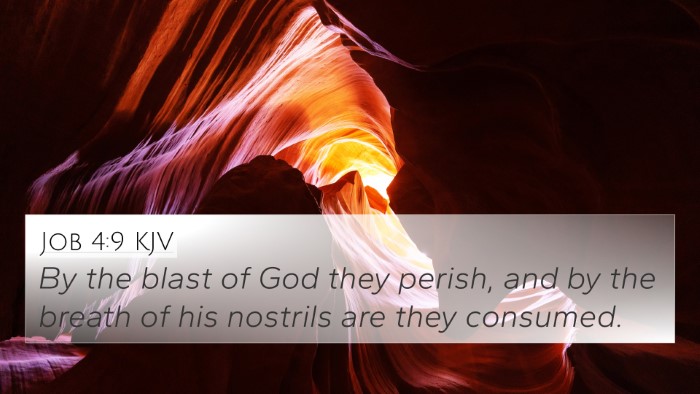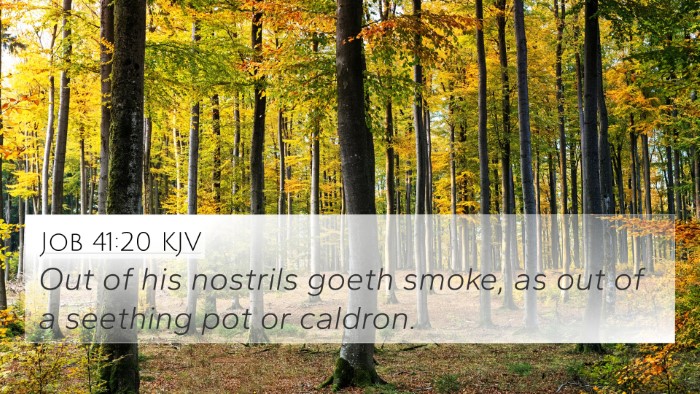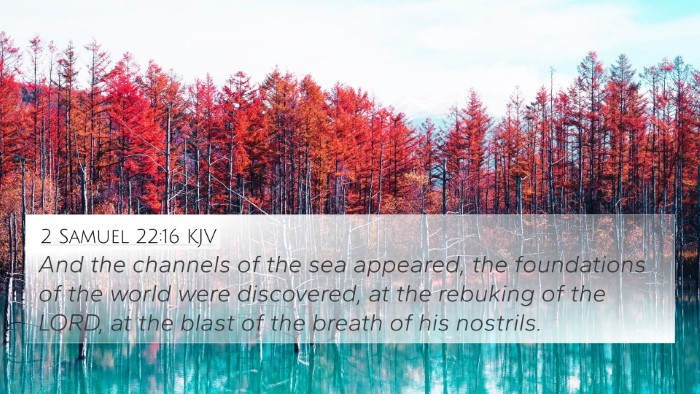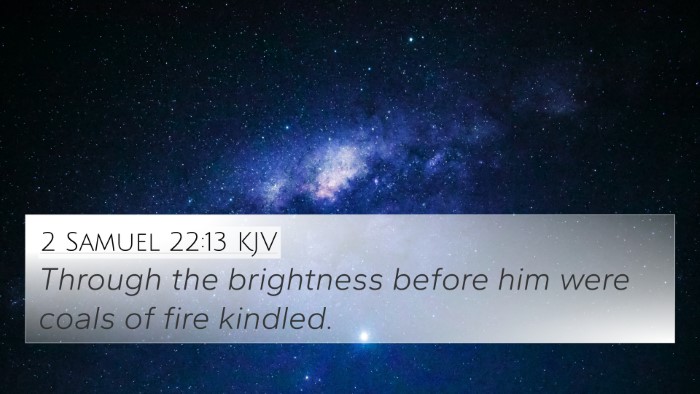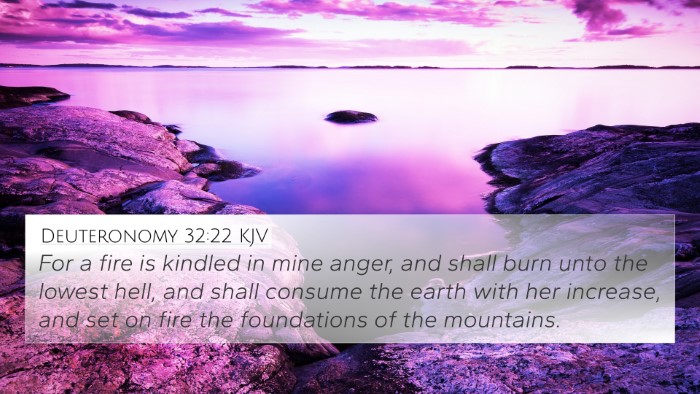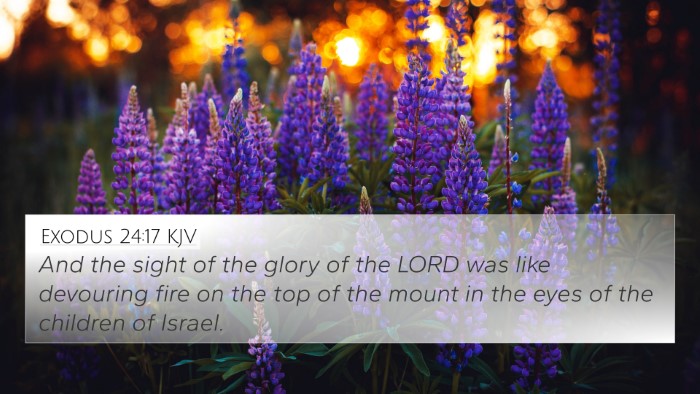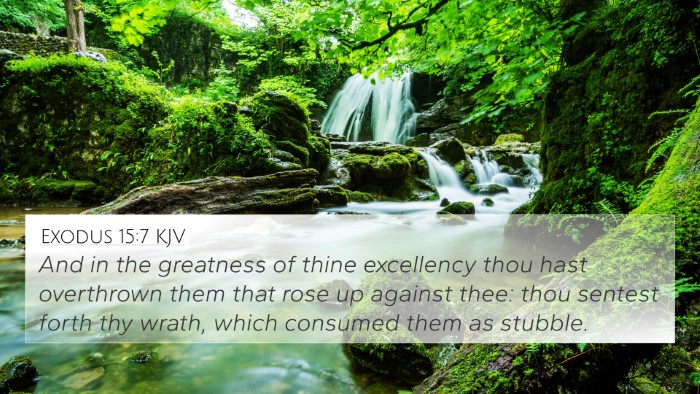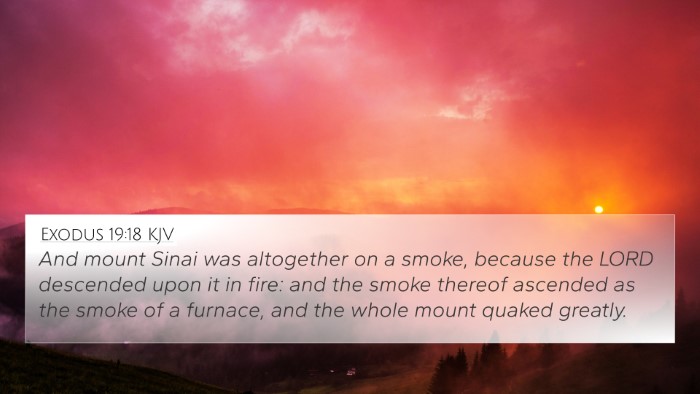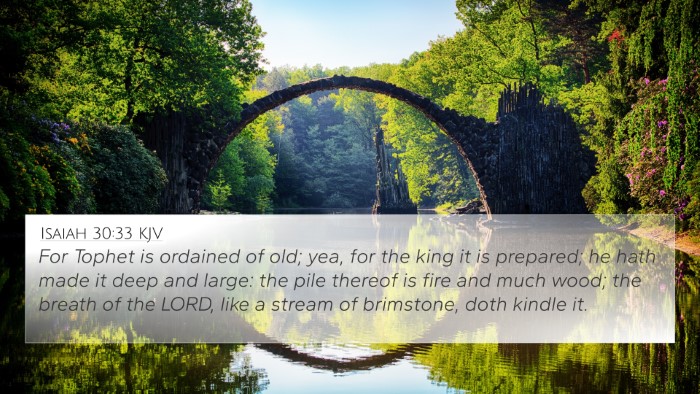Understanding 2 Samuel 22:9
Verse: “Smoke went up from His nostrils, and devouring fire from His mouth; coals were kindled by it.” - 2 Samuel 22:9
Overview
This verse is a vivid depiction of God's power and anger, illustrating a theophany—where God reveals Himself dramatically. The imagery of smoke and fire signifies both His presence and His nature as a consuming force against His enemies. It highlights His ability to intervene in the world of men, especially in the context of David's deliverance from his foes.
Interpretation
This scripture captures a moment of divine intervention, showing that God is not indifferent to the plight of His people. Instead, He actively engages in their struggles. The parallel with natural phenomena—smoke and fire—indicates that God's power is both majestic and intimidating.
Commentary Insights
- Matthew Henry: Henry emphasizes that this verse symbolizes God's wrath against wickedness. Just as smoke and fire are destructive and purging, God's interventions serve to correct and to protect His people. He notes that God’s fury is aimed at delivering justice and safeguarding His faithful ones.
- Albert Barnes: Barnes highlights the metaphorical use of smoke and fire as divine attributes. He points out that this imagery serves to evoke a clear understanding of God’s might and necessity of reverence towards Him. It reflects that God is a warrior who fights on behalf of His followers, illustrated powerfully in the context of David's victories.
- Adam Clarke: Clarke interprets this verse as a poetic expression emphasizing God's innate power and might. He draws connections between this description and other scriptural references that portray God’s control over nature. Clarke also mentions how such images assure believers of God's continual presence in their hardships and His readiness to rescue.
Key Themes
The themes evident in this verse include:
- Divine Sovereignty: The representation of God as powerful and active in human affairs.
- God as Protector: The assurance that God defends His people from adversaries through supernatural forces.
- Judgment: The flames symbolize God's judgment against those who oppose His will.
Bible Verse Cross-References
To fully appreciate the meaning of 2 Samuel 22:9, we can cross-reference it with several relevant scriptures:
- Psalm 18:8-9: “Smoke went up from his nostrils, and devouring fire from his mouth; glowing coals flamed forth from him.” - This parallels the description, reinforcing the powerful imagery of divine wrath.
- Deuteronomy 4:24: “For the LORD your God is a consuming fire, a jealous God.” - This indicates God’s nature as a consuming fire, aligning with the imagery in Samuel.
- Hebrews 12:29: "For our God is a consuming fire." - Affirming the New Testament understanding of God’s holiness and purity.
- Exodus 19:18: “Now Mount Sinai was wrapped in smoke because the LORD had descended on it in fire.” - God’s presence in manifestations of smoke and fire signaling His approach.
- Isaiah 66:15: “For behold, the LORD will come in fire...” - Portraying God as executing judgment through dramatic expressions of fire.
- Revelation 20:9: “And fire came down from heaven and consumed them…” - A prophetic reinforcement of God’s power in judgment.
- Numbers 11:1-3: Describes fire from God’s judgment upon those who complained in the wilderness, showcasing His active response to sin.
Connections between Bible Verses
The connections between these verses illustrate a cohesive understanding of God's character as depicted throughout Scripture. Exploring these thematic Bible verse connections highlights key attributes of God that remain consistent:
- Holiness: God's holiness is represented through His consuming fire, emphasizing the need for reverence.
- Justice: God's intervention acts as both a warning and a deliverance, signifying his role as a righteous judge.
- Protection: Just as expelled fire offers a protective barrier, God’s presence guarantees safety for the faithful.
Comparative Bible Verse Analysis
When undertaking a comparative study of Pauline epistles or analyzing prophetic letters, the parallels in themes such as judgment, divine wrath, and assurance found in 2 Samuel 22:9 continue through Scripture:
- Galatians 5:17: Reflects the conflict between flesh and spirit, much like the tension outlined in God's intervention.
- Romans 12:19: “Vengeance is mine; I will repay, says the Lord,” - Echoes God's role as the ultimate judge and protector of His people.
Conclusion
This exploration of 2 Samuel 22:9 reveals rich theological implications grounded in the intersections of divine power, judgment, and protection. The utilization of cross-referencing Biblical texts enhances understanding and illustrates the continuity of God's character throughout the narrative of Scripture.
Whether conducting a cross-reference Bible study or simply seeking to deepen understanding, the connections and insights offered by public domain commentaries provide a strong foundation for interpreting this verse and its relevance in the broader biblical context.
